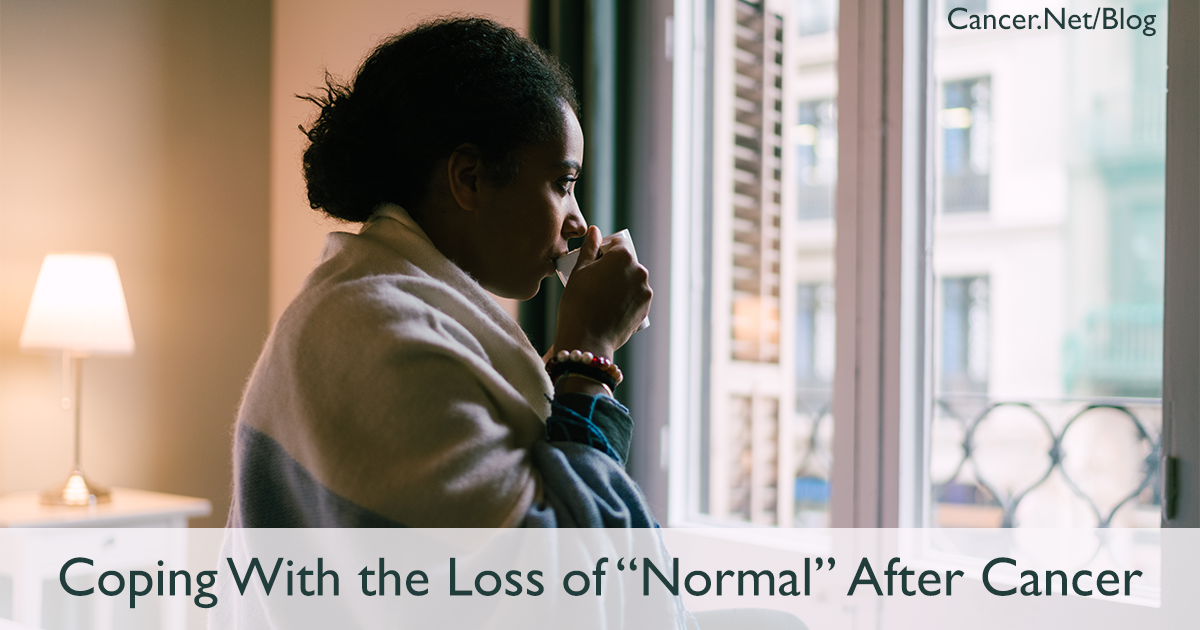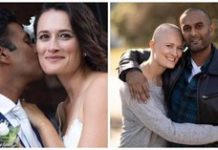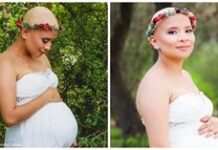
Cordelia Galgut, PhD, is a British registered counseling psychologist. She lives and works in private practice in London, England. She has written 3 books on the psychological impact of cancer, the first 2 about breast cancer and the third about living with the long-term effects of all cancers. She is passionate about highlighting the mismatch between what people think having cancer is like and what the actual reality is. You can follow her on Twitter.
When I was first told I had cancer, I was so busy trying to cope with the fact that I had it and the awful shock and terror that brings that I had no headspace to even begin processing what I would be losing or to feel any sense of grief. My whole focus was on coping in the moment. I just wanted the cancer out of me, and fast. For example, I remember obsessively trying to mark out the size of my first tumor on a piece of paper to help me compute what was happening to me while I waited for surgery. I remember telling myself repeatedly that the tumor wasn’t really that big in order to try to calm myself.
My overriding emotion both times that I was diagnosed with cancer—2 separate diagnoses of breast cancer in 2004—was an extreme, numb panic. For the whole of 2004 and most of 2005, I remained “on hold” in this way. I was still very numb and trying to get through all the treatments, which were way longer than I had expected and much harder to tolerate than I had been told they would be.
These reactions to a diagnosis of cancer and its treatments are very common. Many people with cancer experience an initial “deer caught in the headlights” emotional reaction. But that initial feeling of shock is a state that lasted a long time for me. In fact, it was about 3 years before the overwhelming shock melted significantly. Now, 16 years later, I can still easily summon up those strong emotions, as if I were in the situation now.
Nevertheless, the overriding message and expectation I kept receiving, both as a patient and from most of my health care colleagues, was that once I’d gotten through all the treatments, I could and should put breast cancer behind me and resume life as normal. Lasting grief was not recognized as a possibility.
I know now how wrong that message was. The psychologist part of me didn’t realize this, though, as my professional training had taught me that life after extreme trauma should be back to normal after a relatively short time. Therefore, once treatment ended, I put a lot of pressure on myself to feel OK and back to “normal,” both physically and emotionally. I complicated things for myself, too, by working like a Trojan, both because I wanted that normality back and because I expected myself to be back to normal. However, internally I was becoming very confused, upset, and exhausted. I was starting to realize 4 or 5 years after my initial diagnoses that I was never going to be who I was prior to cancer or be able to live and work as I had.
Experiencing grief after cancer
It took me a long time to identify what I was feeling as grief, particularly because I was having to work out on my own what was going on with me emotionally. It would have helped so much if someone or something external to me had validated how I was feeling and said, “Well, of course you will feel strong grief for what you have lost, and of course you can’t be who you were. How could you be after all you have gone through?”
All these years later, I still have bad times coping with the reality of my life after cancer. Cancer has changed everything: work, relationships, and how I relate to myself. Cancer has also changed how I view everything and everybody. The list of changes is endless, and there are a lot of negative impacts that remain, but some are more positive.
Coping with the losses that cancer brings
I grieve daily—and quite frankly, feel angry about almost daily— the certain aspects of my physical and emotional health that I have lost due to cancer. Cancer has many long-term physical and emotional effects, some of which have worsened over time for me rather than the reverse. I had been told that pain, for example, would improve as time went by, but in my case, it hasn’t. I have often been told, “You should be grateful for still being alive rather than complaining. Count your blessings.” And I do, but it’s not that simple when your quality of life is really poor, as mine often is.
The fear of recurrence or of the spread of cancer can be a huge issue for people living with or beyond cancer. It is a rational dread, since most cancers can return at any point. It’s easy to feel angry about having to live with this ever-present fear and to grieve the loss of a life lived without this fear. It still amazes me how this grief and dread catches me unaware and throws me off-balance, much as grief for my mother who died does. It’s a strange and untamable beast that I just have to learn to tolerate and live alongside as best I can.
Strategies for coping with grief after cancer
If you’re experiencing grief after cancer, there are several coping strategies I’ve used that might work for you, too.
-
Affirm as often as you can:
-
The multitude of coping strategies you have developed throughout your cancer experience. For example, while many have experienced extreme despair during the awful COVID-19 pandemic, many of us who are living with and beyond cancer are used to having to self-isolate and cope with life’s uncertainties. The new normal that others have struggled to accept is one many of us are very familiar with.
-
The extra breadth and depth you have developed as a person as a result of living with and beyond cancer.
-
-
Allow yourself to:
-
Express your sadness, anger, and frustration over what you have lost as often as you feel like doing so, and to speak out about how you feel, if you wish to.
-
Recognize what you have gained, too. For example, many speak of a newfound ability to put down boundaries with others or not tolerate behaviors or people they would have tolerated before cancer.
-
Know that these boundaries can also set us free in some ways. For example, living with or beyond cancer can give us the strength to pursue goals we wouldn’t have had the courage to take on before cancer.
-
Grief doesn’t just go away. It ebbs and flows as time goes by, and the challenge seems to be to learn to live with and alongside it as best you can. Some days will be bad ones and some better. There is no set time after which you are supposed to be done with or past a trauma like cancer, especially when its effects linger and remind you of its damage.







